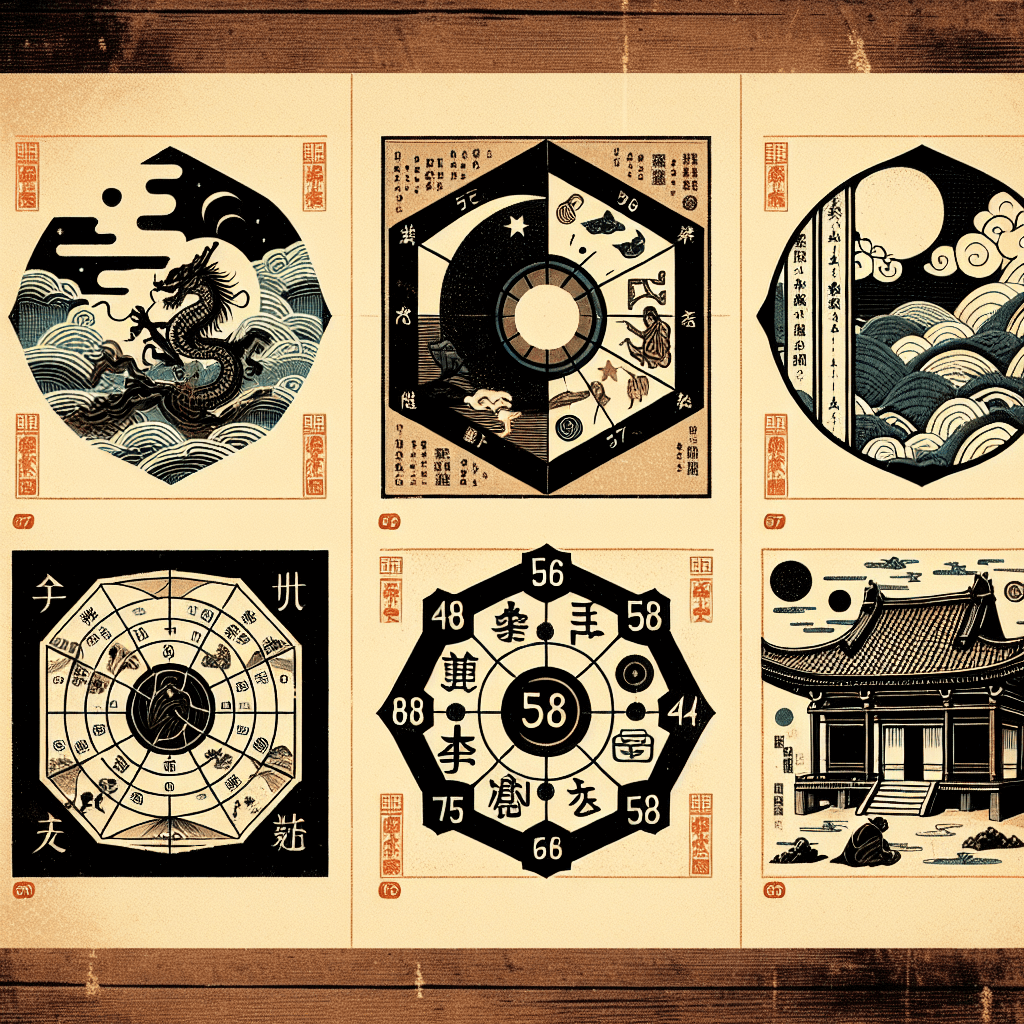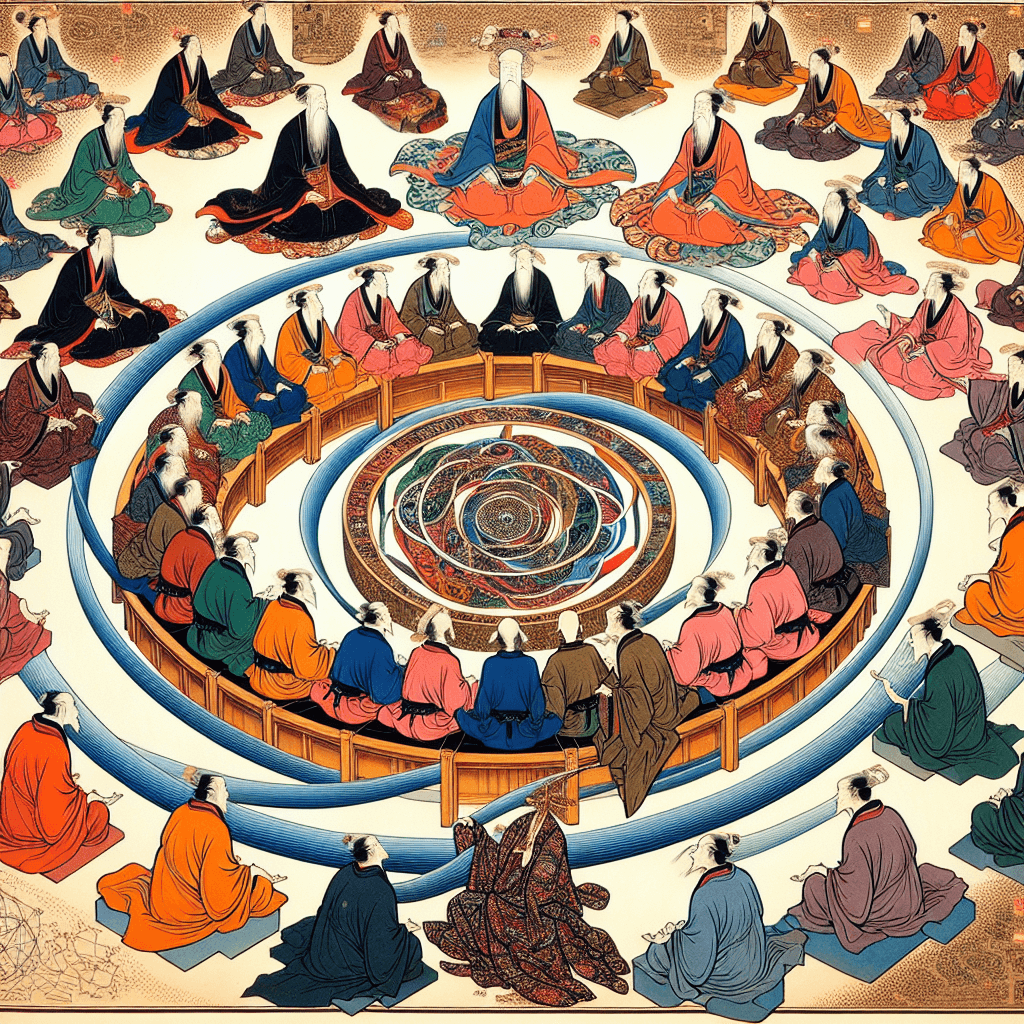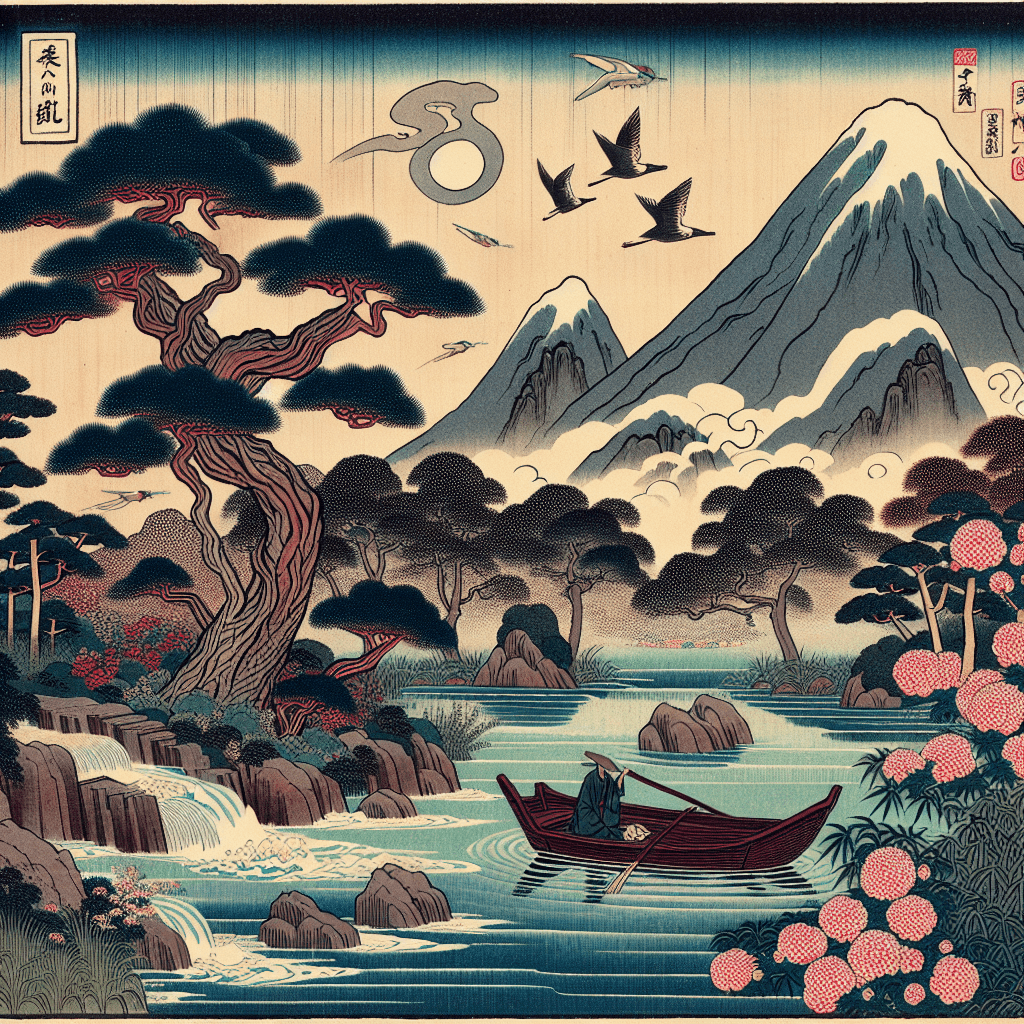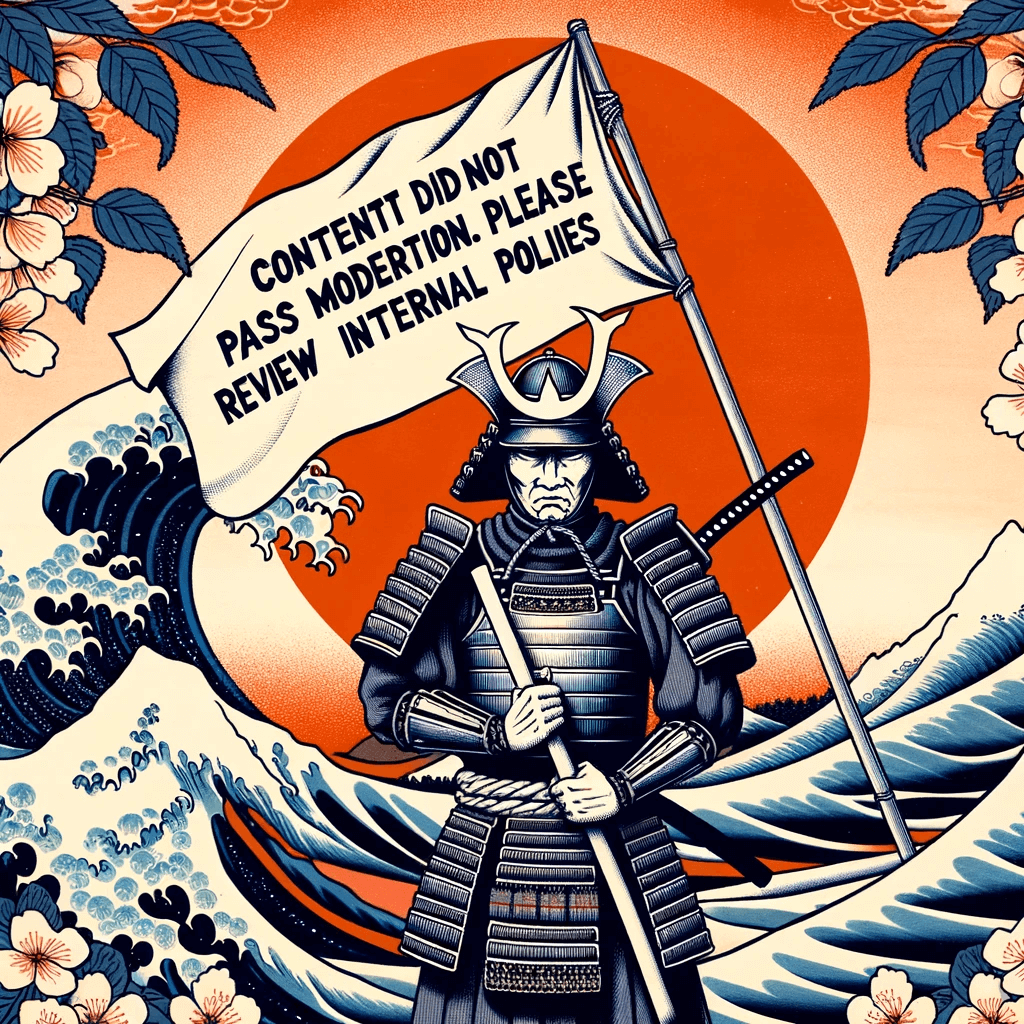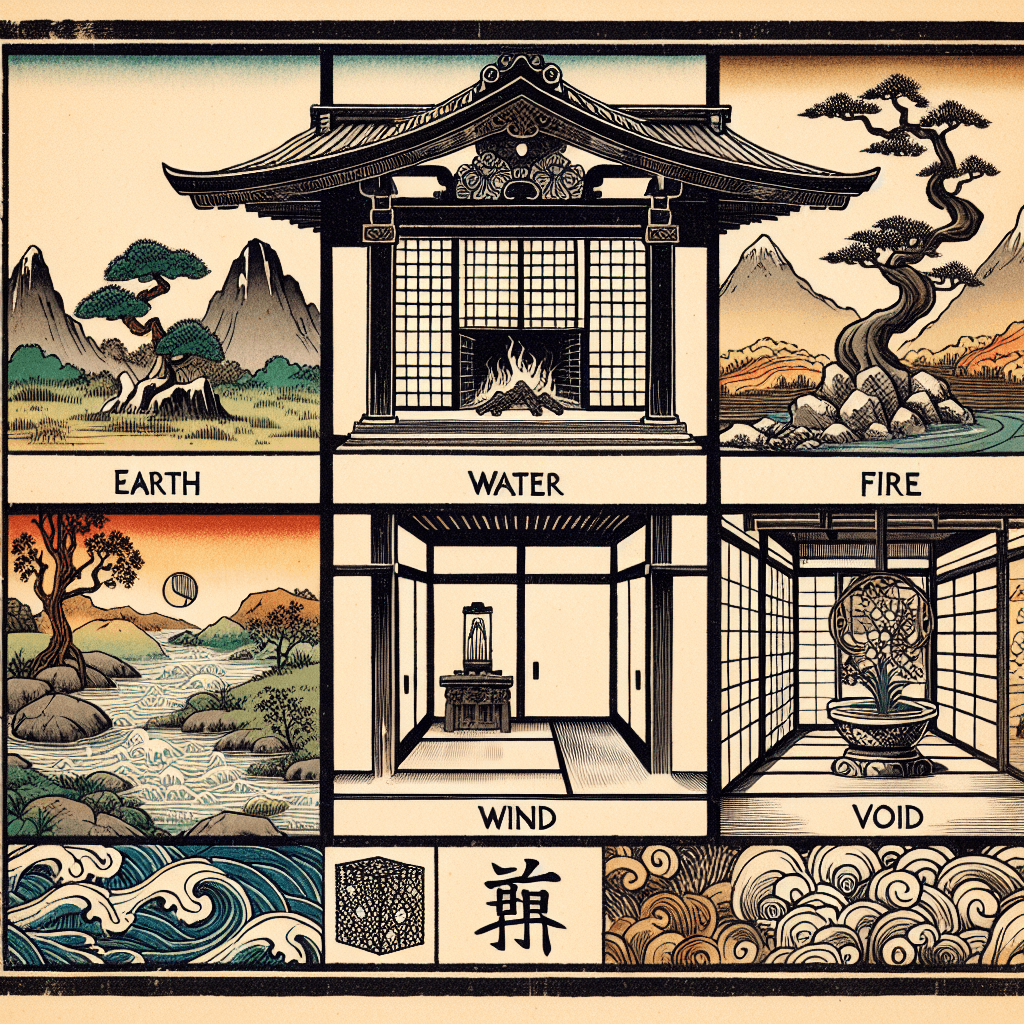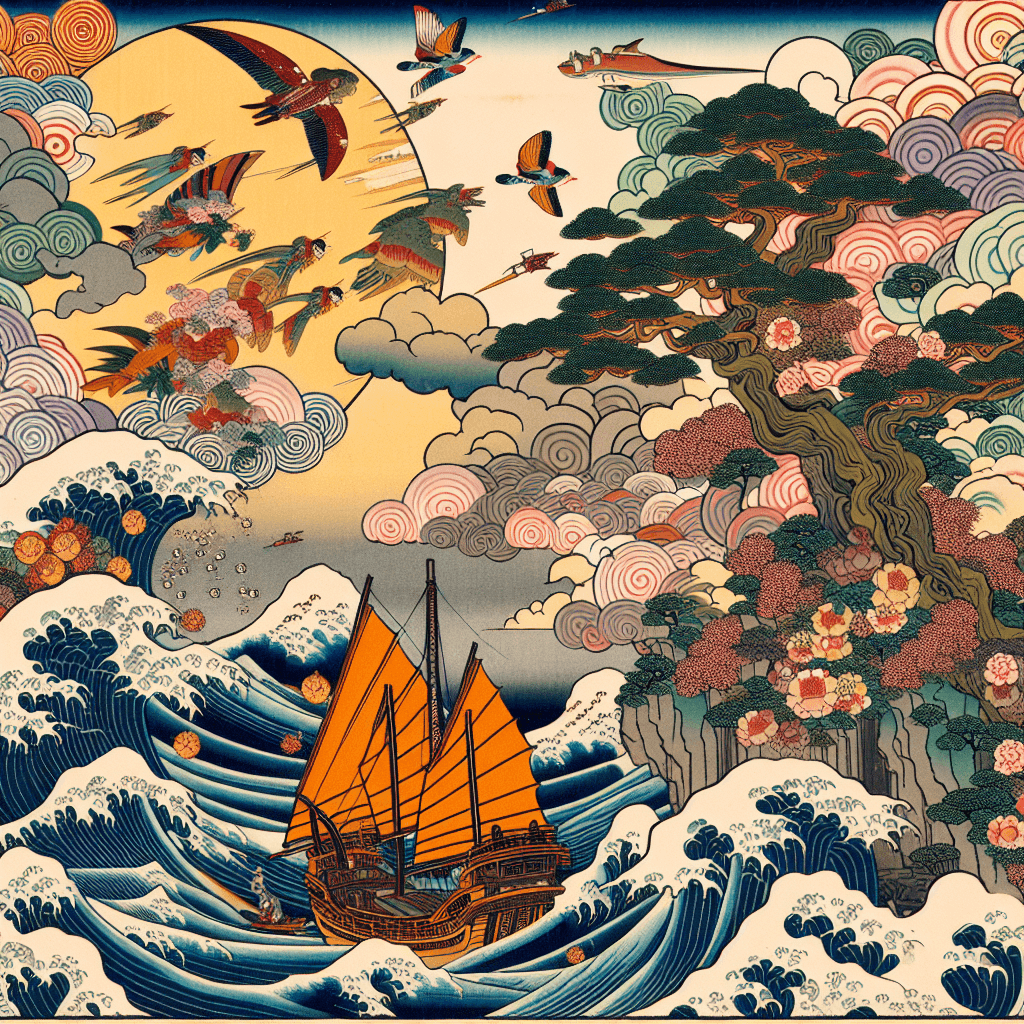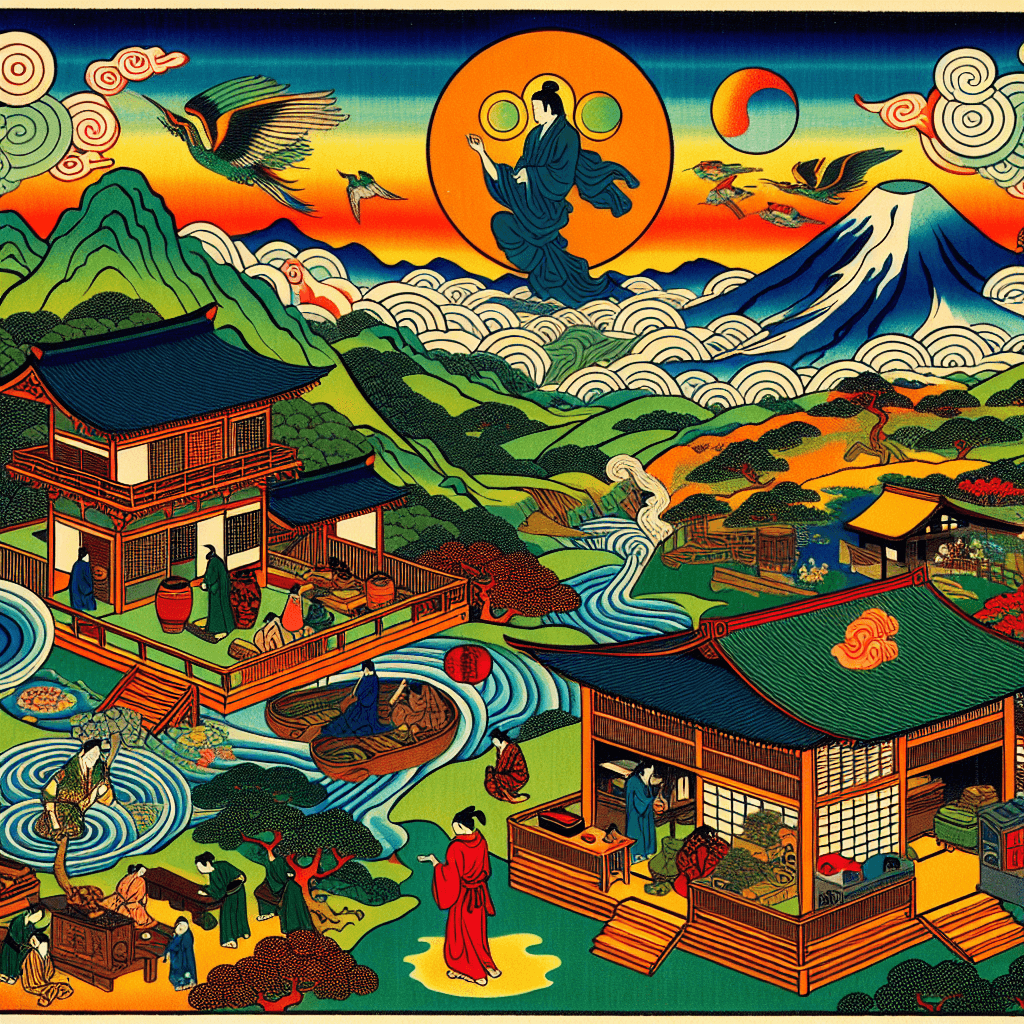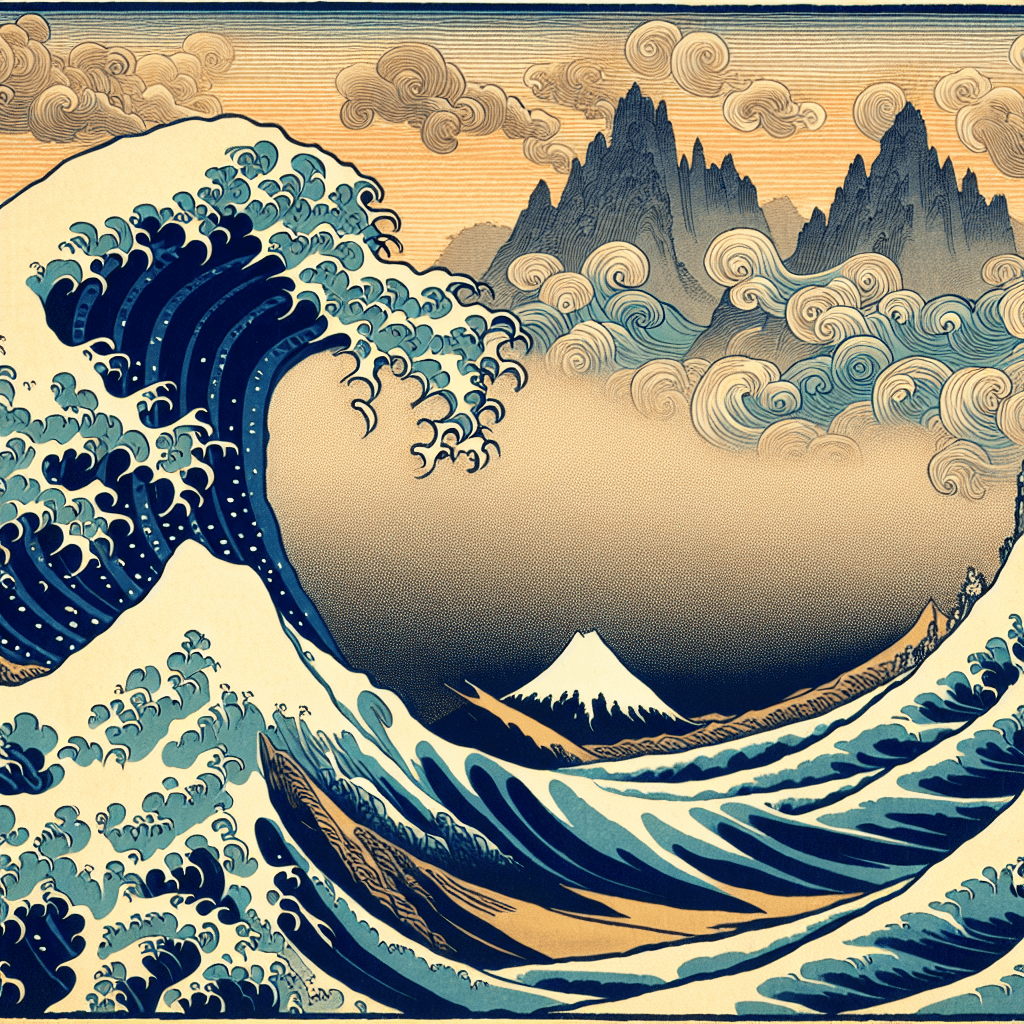Philosophical Aspects of Godai: Unveiling Japanese Thought and Worldview
syndu | May 15, 2024, 8:34 p.m.
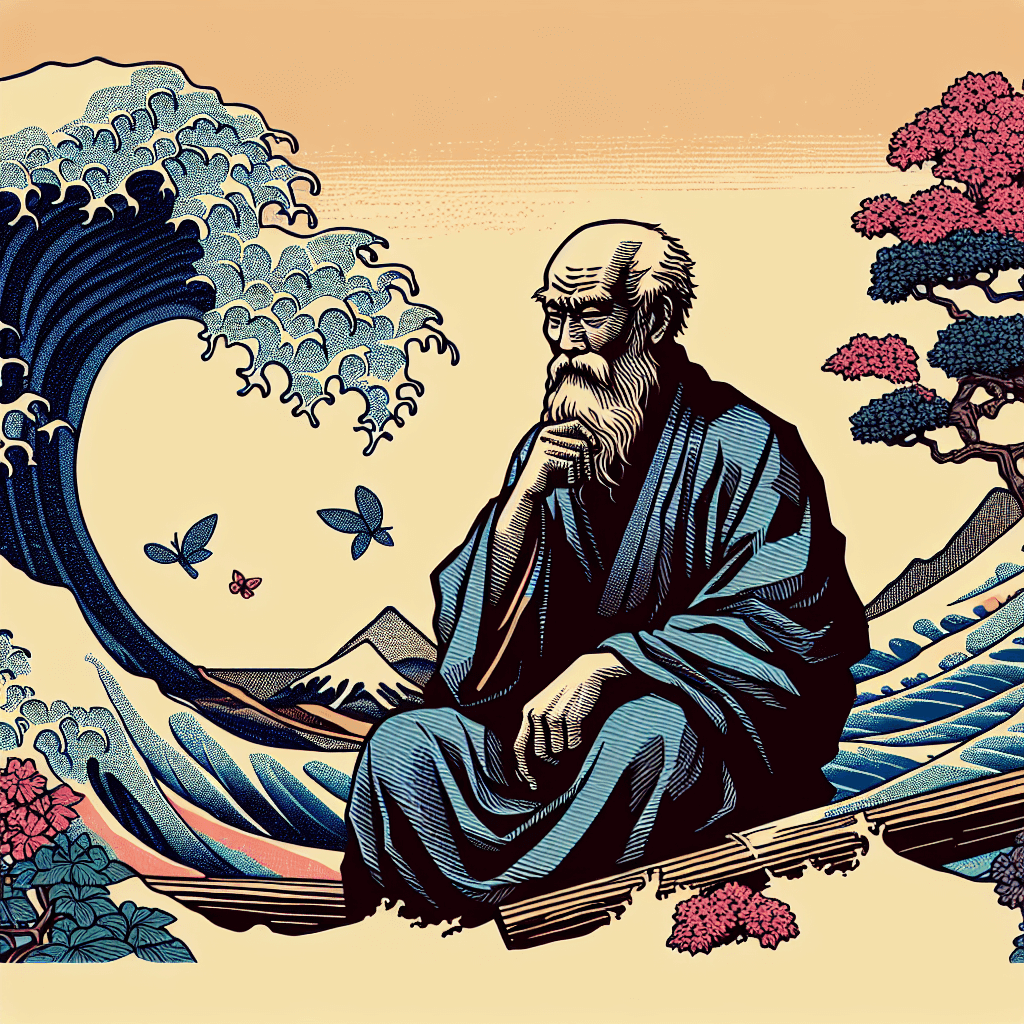
Philosophical Aspects of Godai: Unveiling Japanese Thought and Worldview
The ancient Japanese philosophy of Godai, which translates to the "Five Great" elements, offers a profound lens through which to understand the universe and our place within it. This philosophy delineates five fundamental elements—Earth (Chi), Water (Mizu), Fire (Hi), Wind (Kaze), and Void (Ku)—each symbolizing different states of matter and energy. In this exploration, we delve into the philosophical significance of these elements and their impact on Japanese thought and worldview.
Chi: The Earth Element and Material Philosophy
Chi, representing solidity and stability, is the foundation of Godai and symbolizes the material world. It is associated with qualities such as patience, thoughtfulness, and practicality. Philosophically, Chi encourages a grounded approach to life, emphasizing the importance of a strong foundation in both thought and action. It teaches us to appreciate the tangible aspects of existence and to cultivate growth from a place of security and balance.
Mizu: Water's Philosophical Flow
Mizu, the element of fluidity and adaptability, represents the ever-changing flow of life. In Japanese philosophy, Mizu is a reminder of the transient nature of existence and the need for adaptability. It symbolizes the emotional and intuitive aspects of the human experience, encouraging a philosophy of life that embraces change and the purity of the spirit.
Hi: The Transformative Fire
Hi, embodying energy and transformation, is the driving force behind change and progress. Philosophically, the Fire element represents the passion and motivation that fuel human creativity and innovation. It is the spark that ignites new ideas and the transformative power that allows us to transcend our limitations. Hi teaches us that through energy and effort, we can bring about meaningful change in ourselves and the world.
Kaze: The Philosophical Wind of Change
Kaze, signifying movement and change, is the breath of life in Godai philosophy. It represents the intangible forces that influence our lives and the freedom of thought and expression. Kaze encourages a philosophy of openness, where ideas can flow freely and change can be embraced as a natural and necessary part of life’s journey.
Ku: Embracing the Void
Ku, the element of potential and enlightenment, is perhaps the most enigmatic aspect of Godai. It represents the space where all possibilities exist, inviting us to explore the unknown. Philosophically, Ku is akin to the concept of the sublime—a realm beyond the ordinary that can only be grasped through spiritual insight and deep contemplation. It challenges us to look beyond the surface and to find meaning in the emptiness that holds the potential for everything.
Conclusion: The Elemental Wisdom of Godai
The Godai elements offer a rich philosophical framework that has shaped Japanese culture and thought for centuries. They remind us of the interconnectedness of all things and the cyclical nature of the universe. By understanding the significance of Chi, Mizu, Hi, Kaze, and Ku, we gain a deeper appreciation for the elemental forces that influence our lives and the philosophical insights they provide.
As we conclude this exploration of Godai's philosophical aspects, we carry with us the wisdom of the elements—a wisdom that continues to inspire and guide us toward a harmonious and enlightened existence.
[Note: This post is part of the "Exploring Godai: The Five Elements of Japanese Philosophy" series, offering a philosophical perspective on the elemental forces that shape Japanese traditions and the insights they offer to the world.]
